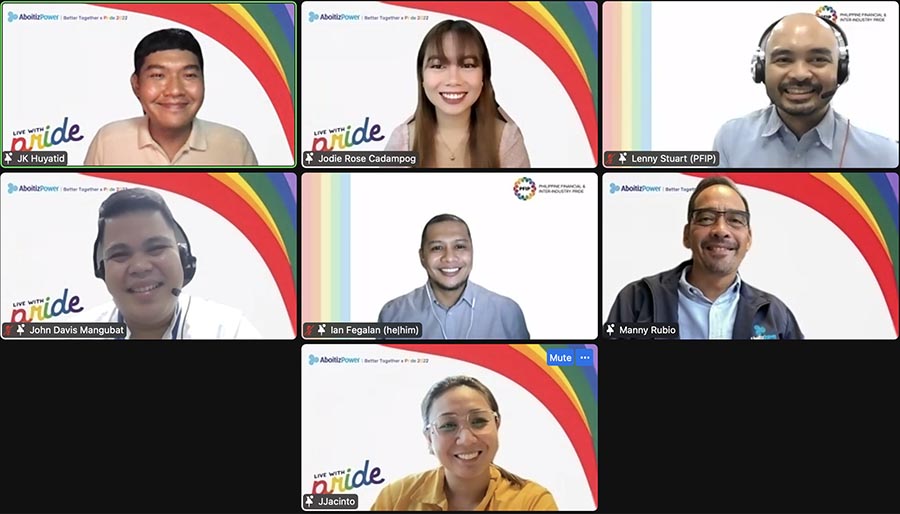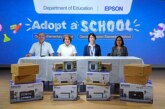
In this photo are (TOP, L-R) #BetterTogether hosts Jean Karl Huyatid and Jodie Rose Cadampog, and panelists Lenny Stuart, (MID, L-R) AboitizPower Assistant Vice President-Commercial Operations John Davis Mangubat, #BetterTogether keynote speaker Ian Fegalan, AboitizPower President and Chief Executive Officer Emmanuel V. Rubio, (BOTTOM) AboitizPower Assistant Vice President-Branding and Communications Janelle Jacinto.
While already making strides in diversity, equity, and inclusion (DEI), Aboitiz Power Corporation (AboitizPower) is pushing the envelope further in creating a safe and welcoming workplace for all.
In a virtual forum on Tuesday, June 22, AboitizPower announced that it was putting together a team tasked with developing more programs and policies under its DEI initiative. Among these is the establishment of resource networks for LGBT+, women at work, and “special life” team members, which include single parents and differently-abled workers.
“Building a diverse and inclusive workforce does not happen overnight. It’s a long-term endeavor and shared responsibility among us at AboitizPower,” AboitizPower President and Chief Executive Officer Emmanuel V. Rubio said.
The activity is part of the company’s #BetterTogether series launched in October last year to improve its team members’ knowledge and appreciation of sustainability concepts. This time, the forum focused on “leading a diverse and inclusive workforce” in line with the celebration of Pride Month.
During the event, AboitizPower bared plans to develop Employee Resource Groups (ERG) that will assist team members with shared experiences in their personal or career development and create a safe space for them to put their best foot forward. While the concept is already being practiced under the company’s mentorship program, this initiative seeks to expand it from a DEI perspective.
ERG may help improve working conditions for employees who may feel alienated, address company-wide challenges, and decrease the chances of suppressed frustrations within the workforce.
Although AboitizPower officially introduced the DEI concept to its team members in 2019, Rubio said the company has always strived to be inclusive and has never tolerated discrimination.
“We’re relatively new as far as diversity and inclusion are concerned. But I am very proud of what we have achieved as a company and this is because of the work that our team members have put in to get to where we are now,” Rubio added.
AboitizPower has institutionalized DEI as a critical component in its talent management, recruitment, and employee integration governance and process as a commitment to being an equal opportunity employer. Earlier this year, the company announced the inclusion of domestic partners, whether common-law or same-sex, as beneficiaries in its HMO coverage for employees.
“We’re not exactly there yet, but we are getting there. That’s why we have to put all these measures and policies in place to ensure we are heading in the right direction,” Rubio said.
Learning and development professional Jay Ian Fegalan, serving as the forum’s keynote speaker, lauded AboitizPower’s DEI initiatives. He added that the company might reach the level of those in more progressive western countries in a few years.
“Looking at where you are right now, it’s already impressive, especially for a company based in the Philippines, where it’s still traditionally conservative. AboitizPower can become an example to other companies,” said Fegalan, Leadership Pillar lead in the Philippine Financial & Inter-Industry Pride (PFIP).
PFIP is a collaborative, voluntary, and non-profit community of Pride/LGBT+ advocates and allies from private organizations in the Philippines. It is the leading voice and champion of LGBT+ workplace inclusion. It promotes safe spaces and inclusive opportunities for all talents regardless of their sexual orientation, gender identity, expression, and characteristics.
“The dream is not to be talking about these things anymore, to not be mandating policies, to not be measuring anything else. But until we reach that dream, we need to be [deliberate with our mandates, policies, and programs],” Fegalan added.
![]()







